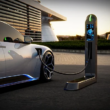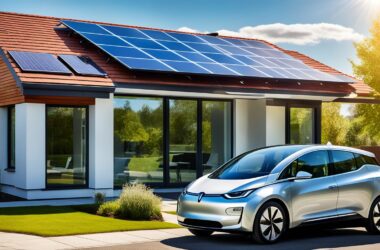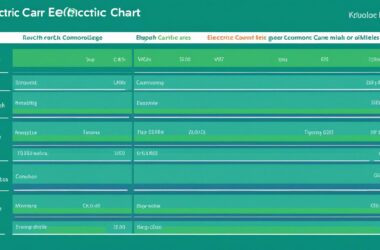In today’s global landscape, sustainability has taken center stage for businesses of all kinds. Organizations are actively seeking ways to minimize their environmental impact, leading to a significant shift from internal combustion engines (ICE) vehicles to electric vehicles (EVs).
The Booming EV Market
The electric vehicle market is experiencing unprecedented growth, extending beyond passenger cars to encompass commercial fleets, including both light commercial vehicles and heavy-duty trucks.
Fuel retailers find themselves at the crossroads of this transition. As margins on traditional fuel tighten, and EV charging emerges as a more attractive prospect, these retailers are exploring ways to diversify and future-proof their businesses.
Strategic Positioning of Petrol Stations
Petrol stations, with their existing infrastructure and strategic locations along major transport routes, are ideally positioned to benefit not only from passenger EV charging but also from the electrification of commercial fleets.
Beyond Passenger Vehicles: Commercial Fleets in Focus
While passenger cars dominate discussions around electrification, it’s crucial to recognize that commercial vehicles contribute significantly to transport emissions. This includes light commercial vehicles, such as vans, and heavy-duty commercial vehicles like trucks and lorries.
Governments and businesses, striving for carbon neutrality, are rapidly adopting electric vehicles in commercial transport. According to the International Energy Agency, the number of light commercial electric vehicles globally is projected to soar from 10 million in 2020 to approximately 50 million in 2025 and nearly 140 million in 2030. Heavy-duty electric vehicles are expected to reach 1.8 million in 2030.
Charging Needs of Commercial Fleets
Charging stations not only attract high-income customers during charging breaks but also cater to the growing demand from commercial fleets shifting to electric mobility. Light commercial vehicles, especially those involved in short-haul and last-mile delivery, present a significant opportunity for electrification.
Major logistic companies like Amazon, UPS, DHL, FedEx, and IKEA are already aggressively electrifying their fleets, emphasizing the need for a robust charging infrastructure.
Fuel Retailers’ Opportunity: Meeting Mid-Route Charging Needs
Fuel retailers can play a pivotal role in addressing the increasing demand for mid-route charging for electric delivery vehicles. Leveraging their locations and existing infrastructure, they can fill the current gap in charging infrastructure.
Strategies for Fuel Retailers
1. Offer DC Fast Charging Stations
- Install Level 3 charging stations, the fastest type of EV charger.
- Ideal for short stops, allowing commercial fleets to quickly top up during journeys.
2. Upsell Additional Services
- Beyond charging revenue, fuel retailers can capitalize on higher-margin services like food and beverages.
- Increase overall profitability by combining these services with stable electricity prices.
3. Utilize Government Incentives
- Leverage incentives such as tax exemptions and grants for building EV charging infrastructure.
- Minimize investment costs while contributing to environmental sustainability.
4. Partner for Discounts
- Collaborate with logistic or delivery companies to offer discounted charging rates.
- Create a win-win situation where fleets save on installation costs, and retailers secure a consistent revenue stream.
Conclusion: Fueling the Future of Electric Mobility
As the global transportation sector shifts towards electric vehicles, fuel retailers have a unique opportunity to support and benefit from this transition. By strategically embracing the electrification trend, leveraging existing infrastructure, and catering to the evolving needs of commercial fleets, they can ensure consistent, long-term revenue and play a key role in shaping the future of electric mobility.
Watch our review on EV Charger : https://bestevcharger.co.uk/easee-one-ev-charger-review/










